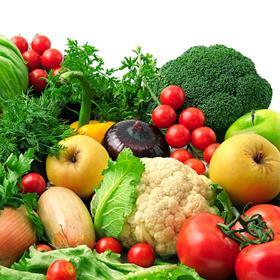
A new study has linked both high and low mental wellbeing with how many servings of fruit and vegetables a person eats each day.
More than 33 per cent of respondents with high mental wellbeing ate five or more portions of fruit and vegetables a day, compared to 6.8 per cent of those who ate less than one portion.
Added to that, another 31 per cent of those with high mental wellbeing ate three to four portions, and 28 percent of those found to have high mental wellbeing ate one to two portions of fruit or vegetables per day.
Lead author Saverio Stranges, of the University of Warwick’s Medical School, said: 'The data suggests that higher an individual’s fruit and vegetable intake, the lower the chance of their having low mental wellbeing.
“Along with smoking, fruit and vegetable consumption was the health-related behavior most consistently associated with both low and high mental wellbeing.
“These novel findings suggest that fruit and vegetable intake may play a potential role as a driver, not just of physical, but also of mental wellbeing in the general population.”
Low mental wellbeing is strongly linked to mental illness and mental health problems, but high mental wellbeing is more than the absence of symptoms or illness—it’s a state in which people feel good and function well.
Mental wellbeing was assessed using the Warwick-Edinburgh Mental Wellbeing Scale, in which the top 15 per cent of participants are categorised as having high mental wellbeing, the bottom 15 per cent low, and the middle 16 to 84 percent as middle.
The research involved 14,000 participants in England aged 16 or over, with 56 per cent of those being female and 44 per cent male, as part of the Health Survey for England.
The survey collected detailed information on mental and physical health, health related behaviors, demographics, and socioeconomic characteristics.






No comments yet